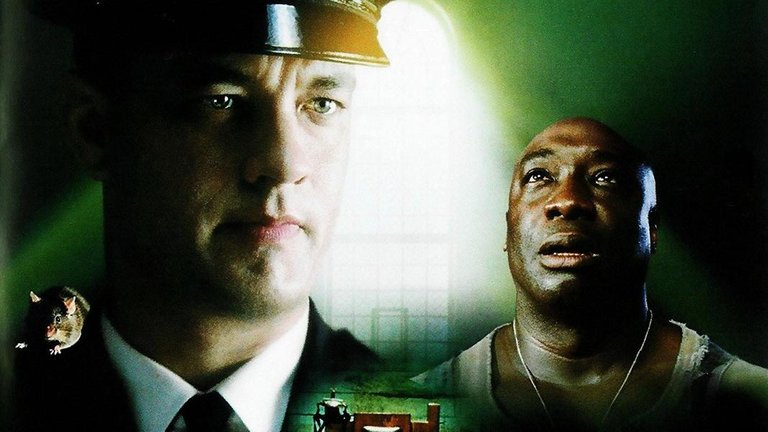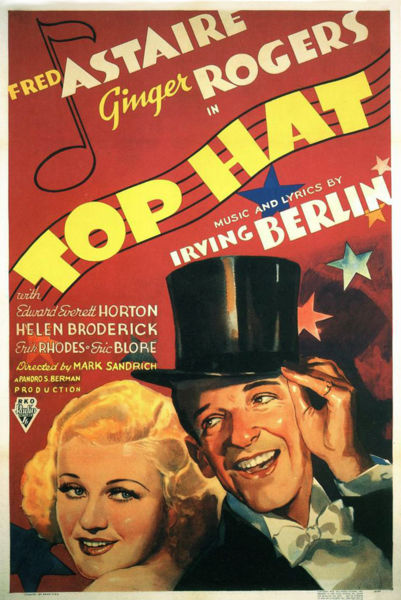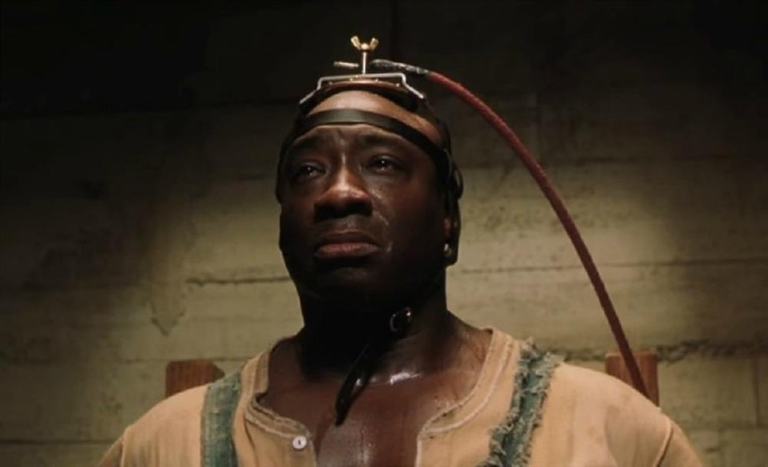CineTV Contest: Milagros Inesperados / The Green Mile [ESP-ENG]
¡Saludos! Por acá vuelvo con mi segunda participación en este reto enfocado en el cine. Para esta ocasión el enfoque está en películas de Tom Hanks, el actor conocido por las trágicas historias que involucran naufragios o secuestros de embarcaciones, aunque también encuentros bélicos y otras tantas situaciones cargadas de drama. Para mi es un actor increíble y aunque hace tiempo que no veo películas, hice memoria hasta llegar a "Milagros Inesperados" también conocida como "The Green Mile".
Esta película está basada en la novela de Stephen King "The Green Mile" que a su vez está basada en el trágico caso de George Stinney Jr, un niño que se convirtió en la persona más joven en ser ejecutada en los EEUU. Esto por una acusación de asesinato en primer grado de dos niñas, el juicio fue sospechosamente rápido y la condena se ejecutó tan solo 3 meses después, pena de muerte en la silla eléctrica.
Tras setenta años, se absolvió al condenado, al revelar que el proceso fue injusto. El mismo estuvo plagado de faltas constitucionales y de una completa incompetencia por parte del abogado. Se basaron en un testimonio de dudosa procedencia y dejaron de lado el de la hermana de George, quien afirmó que estuvo a su lado en el momento del asesinato por lo que era imposible que él fuera el culpable.
Greetings! Here I come back with my second participation in this challenge focused on movies. This time the focus is on films by Tom Hanks, the actor known for his tragic stories involving shipwrecks or hijackings, but also war encounters and many other dramatic situations. For me he is an incredible actor and even though it's been a while since I've seen his movies, I remembered him until I got to "Milagros inesperados" also known as "The Green Mile".
This movie is based on Stephen King's novel "The Green Mile" which in turn is based on the tragic case of George Stinney Jr, a boy who became the youngest person to be executed in the US. This for an accusation of first degree murder of two girls, the trial was suspiciously fast and the conviction was executed only 3 months later, death penalty in the electric chair.
After seventy years, the condemned man was acquitted, revealing that the process was unfair. It was riddled with constitutional flaws and complete incompetence of counsel. They relied on testimony of dubious provenance and left out the testimony of George's sister, who stated that she was by his side at the time of the murder, making it impossible for him to be the guilty party.


La película de hecho no está tan alejada de aquel relato real, sin embargo, incluyen varios personajes, una serie de eventos sobrenaturales y una especie de "castigo de longevidad". Se cuenta desde la perspectiva de un anciano que conocemos como "Paul", este luego de ver una cinta recuerda sus tiempos como guardián de prisión, en el que vivió situaciones bastante extrañas con los reos condenados a muerte y el resto de sus compañeros guardias.
De la cinta resaltaría la crudeza de las escenas de muerte y las escenas de racismo que no eran poco comunes en la época en la que se ambienta. John Coffey logró que derramase algunas lágrimas más de una vez mientras veía la película, su papel fue tan emotivo que sé que no fui el único que no logró mantenerse sin ponerse algo sentimental.
Coffey fue sentenciado por el asesinato de dos niñas, aunque claramente esto no concuerda con lo que demuestra en su estadía en la prisión, su carácter es como el de un niño inocente a pesar de su gran tamaño y fuerza. Se revela que tiene un don de sanación, cuando lo usa en múltiples ocasiones, entre las que destaca cuando sana a Paul de su problema en la vejiga y cuando sana a "Mr. Jiggles", la pequeña rata de "Del" / Eduard Delacroix, luego de ser pisada por Percy, un guardia que detestaba a Del.
Coffey demuestra temor a la oscuridad y una profunda impotencia por las injusticias del mundo, llega a trasplantar un tumor que le había retirado a Melinda Moores, la esposa de Harold Moores, director de la prisión. Y cuando hace esto, él va directo a asesinar al violador "Salvaje Bill". Coffey luego dice "tenía que castigar a esos chicos malos, jefe", lo que me da a entender que se refería a Salvaje Bill por su atrocidad y a Percy por sabotear el juicio de Delacroix al no mojar la esponja que va sobre la cabeza del condenado para que la electricidad vaya más rápido al cerebro y la muerte sea más humana y también por sus actitudes degeneradas que muestra en más de una ocasión.
Aquello causó que el reo prácticamente se cocinara vivo y despidiera un olor muy desagradable que dejo alarmados a los testigos de la ejecución, aquella escena es sumamente cruda. Incluso muestran el cuerpo luego de todo el acto. Según estuve leyendo Delacroix quemó el cuerpo de las niñas de las que había abusado pero el fuego se propagó e incendió un sitio aledaño, causando la muerte de varias personas más, esto se relata en el libro. Quizás haya sido un detalle del autor referenciando el "Ojo por ojo".
El último deseo de Coffey antes de morir fue ver una película, la que fue "Top Hat" y de hecho fue la misma que detonó el recuerdo en aquel anciano Paul que es donde inicia la película. Todo lo que manifestó Coffey no hizo que Paul viajara para preguntar de primera mano al abogado si él de verdad era culpable y es cuando se entera de que no hay registros del condenado de muerte, lo describe como "caído del cielo" pero no deja de afirmar que es culpable del delito.
The film is in fact not so far from that real event, however, it includes several characters, a series of supernatural events and a kind of "longevity punishment". It is told from the perspective of an old man we know as "Paul", who after watching a tape recalls his time as a prison guard, in which he experienced quite strange situations with the inmates condemned to death and the rest of his fellow guards.
From the film I would highlight the crudeness of the death scenes and the scenes of racism that were not uncommon in the era in which it is set. John Coffey managed to make me shed a few tears more than once while watching the film, his role was so emotional that I know I wasn't the only one who didn't manage to keep from getting a little emotional.
Coffey was sentenced for the murder of two girls, although this clearly doesn't match what he demonstrates in his time in prison, his character is like that of an innocent child despite his great size and strength. He is revealed to have a gift of healing, when he uses it on multiple occasions, most notably when he heals Paul of his bladder problem and when he heals "Mr. Jiggles", "Del's" / Eduard Delacroix's little rat, after being stepped on by Percy, a guard who loathed Del.
Coffey demonstrates a fear of the dark and a deep helplessness for the injustices of the world, he goes so far as to transplant a tumor he had removed from Melinda Moores, the wife of Harold Moores, warden of the prison. And when he does this, he goes straight to murdering the rapist "Wild Bill." Coffey then says "I had to punish those bad boys, boss", which gives me to understand that he was referring to Wild Bill for his atrocity and to Percy for sabotaging Delacroix's trial by not wetting the sponge that goes over the condemned man's head so that the electricity goes faster to the brain and the death is more humane and also for his degenerate attitudes that he shows on more than one occasion.
This caused the prisoner to practically cook alive and give off a very unpleasant smell that left the witnesses of the execution alarmed, that scene is extremely crude. They even show the body after the whole act. According to what I was reading, Delacroix burned the bodies of the girls he had abused, but the fire spread and set fire to a nearby place, causing the death of several other people, this is told in the book. Perhaps it was a detail of the author referencing the "An eye for an eye".
Coffey's last wish before dying was to see a movie, which was "Top Hat" and in fact it was the same one that triggered the memory in that old man Paul, which is where the movie starts. All that Coffey said did not make Paul travel to ask the lawyer first hand if he was really guilty and that is when he learns that there is no record of the death row inmate, he describes him as "fallen from the sky" but does not fail to affirm that he is guilty of the crime.



La escena de la muerte de John Coffey fue desgarradora, sus palabras cuando el jefe Paul le pregunta si tiene algo que decir, luego de citar su condena fueron: "Lamento ser lo que soy". Y cuando le van a colocar la bolsa de tela negra para cubrir su rostro, dice: "Por favor jefe, no me ponga esa cosa sobre mi rostro, no me ponga en la oscuridad, le temo a la oscuridad".
Su petición se cumple y luego de dilatar el momento, pues Paul no es capaz de dar la orden, siguió el protocolar "Se hará pasar electricidad por todo su cuerpo según la ley del estado, que Dios se apiade de su alma", se tarda aun más la orden por lo que Brutus, le da el "empujón", al recordarle que debe dar la orden. Las lagrimas corren entre los rostros de los guardias y la muerte llega para John Coffey.
Luego de aquello se muestra el cuerpo sin vida de Coffey con las heridas de quemaduras en la cabeza, Paul le coloca un collar, mismo que le había regalado antes la mujer que había sanado de su tumor que le provocaba tanto dolor que la hacía blasfemar "sin darse cuenta" como lo relataba su esposo.
Posteriormente somos traslados de vuelta a donde estábamos al comienzo de la película, pero esta vez, el anciano Paul acompañado de la anciana que escuchaba su relato van juntos a una cabaña donde se encuentra una rata que muestra bastante vejez, era "Mr. Jiggles". Paul afirma que su castigo por permitir la muerte de aquel ángel, era la longevidad, el ver morir a sus seres queridos sin tener idea de cuando llegaría su hora.
John Coffey's death scene was heartbreaking, his words when Chief Paul asks him if he has anything to say, after quoting his conviction were, "I'm sorry for what I am." And when they go to put the black cloth bag over his face, he says, "Please Chief, don't put that thing over my face, don't put me in the dark, I'm afraid of the dark."
His request is fulfilled and after delaying the moment, as Paul is not able to give the order, he followed the protocol "Electricity will be passed through your whole body according to the law of the state, may God have mercy on your soul", it takes even longer for the order so Brutus, gives him the "nudge", by reminding him to give the order. Tears stream down the faces of the guards and death comes for John Coffey.
After that, Coffey's lifeless body is shown with the burn wounds on his head, Paul places a necklace on him, the same one that had been given to him earlier by the woman who had healed him of his tumor that caused him so much pain that he made her blaspheme "without realizing it" as her husband said.
Later we are transferred back to where we were at the beginning of the film, but this time, the old man Paul accompanied by the old woman who was listening to his story go together to a hut where there is a rat that shows quite old age, it was "Mr. Jiggles". Paul affirms that his punishment for allowing the death of that angel was longevity, to see his loved ones die without having any idea when their time would come.




https://twitter.com/1587635127911436288/status/1600522110039986177
The rewards earned on this comment will go directly to the people( @gabrielrr17 ) sharing the post on Twitter as long as they are registered with @poshtoken. Sign up at https://hiveposh.com.
This movie is breathtaking, with an explosive charge of emotionality that kept me crying from the middle of the middle of the movie to the end.